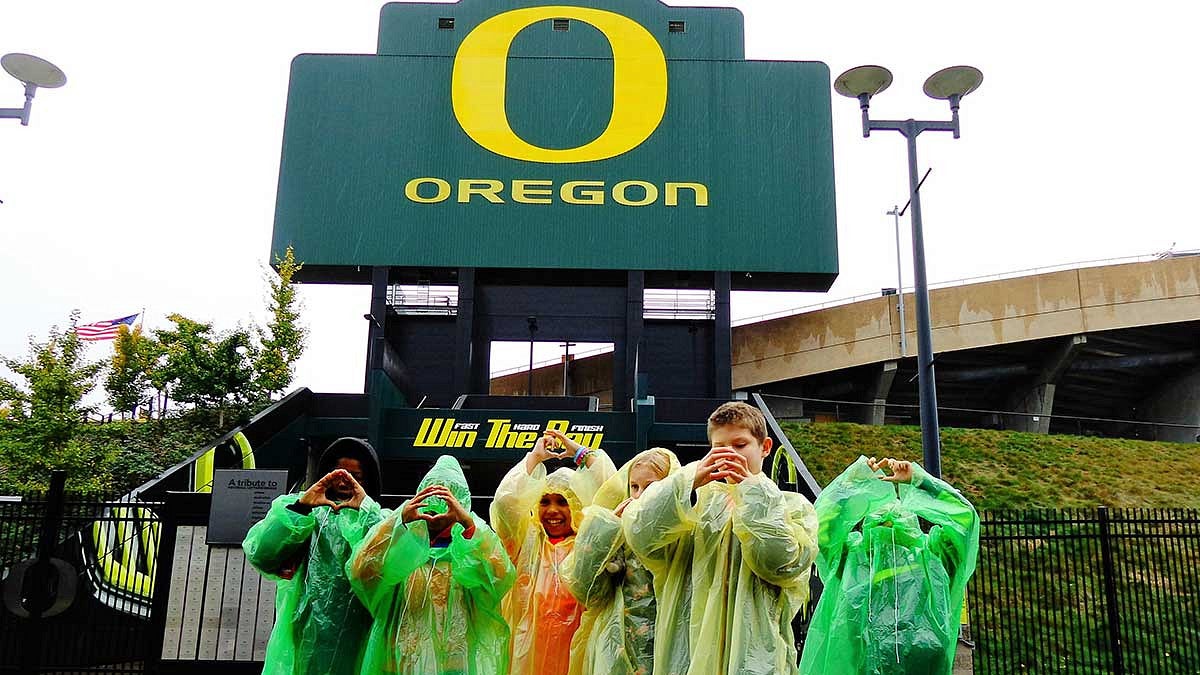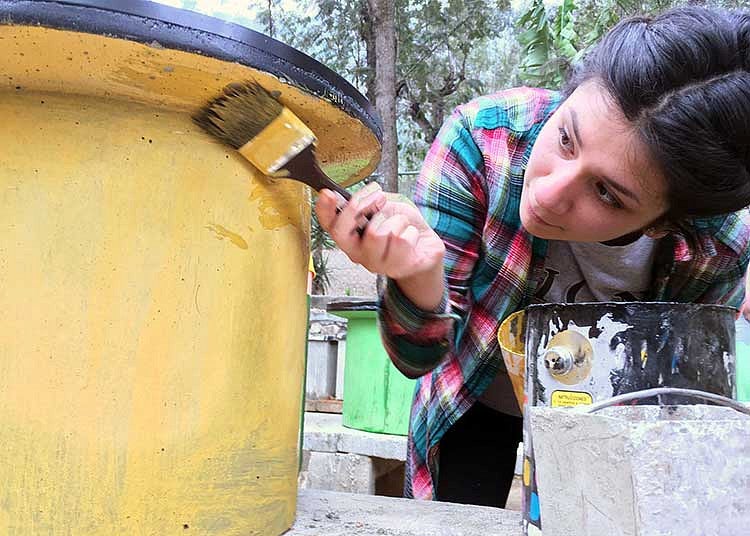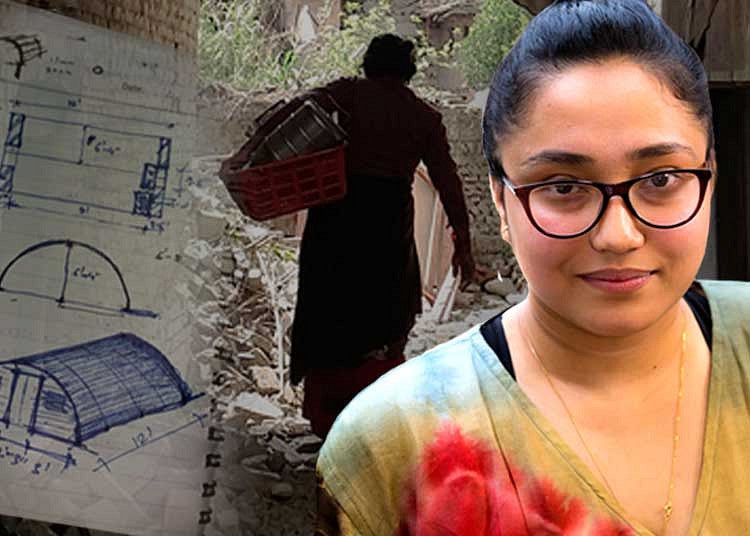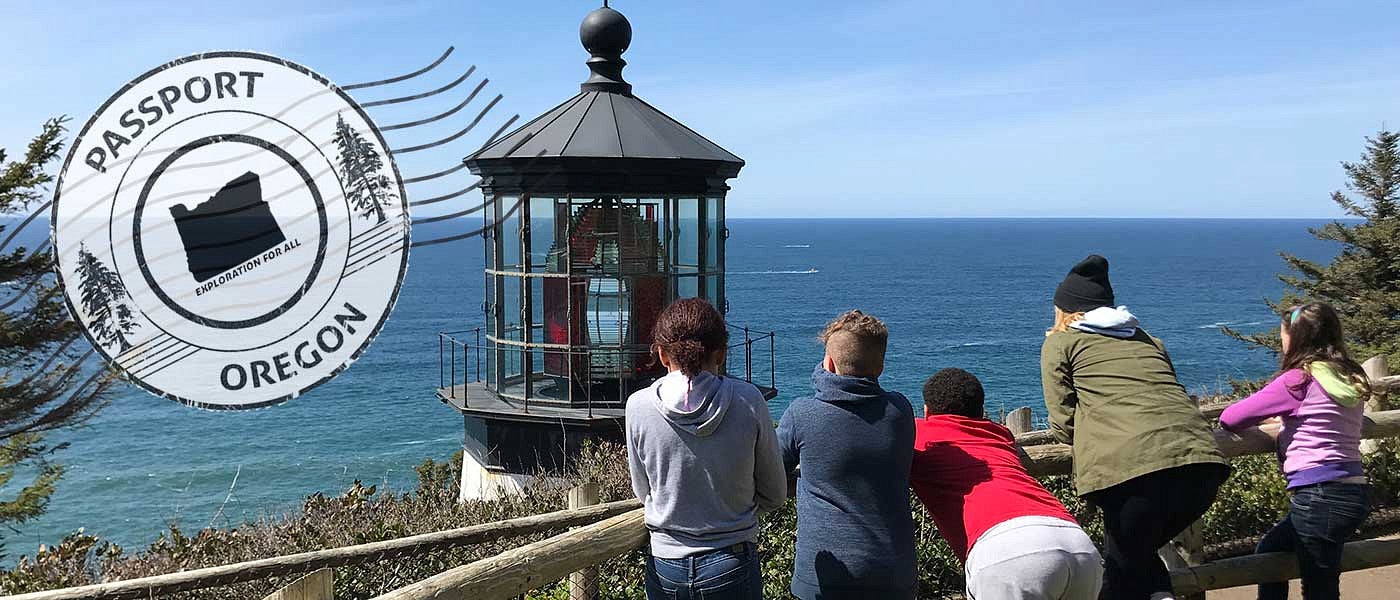
Passport Oregon
BY LAURIE NOTARO
It’s quiet as seven fourth- and fifth-graders from Portland’s Creston Elementary School stand on a grassy bank thick with mud, staring into a slowly running creek below. The children cannot look away. The woods that surround them are still, hushed. A break in the high branches permits a beam of sunshine to spot on a pink backpack or reflect off the water.
“Do you see one?” whispers Heather Greene, the resident educator at Aprovecho Sustainability Education Center in Cottage Grove, to the seven sets of eyes that are focused on the water, darting at every movement.
It’s the exact kind of wonder Kevin Frazier, BS ’15, envisioned when he started Passport Oregon, a nonprofit devoted to providing a gateway to nature for city kids who don’t have many opportunities to see the wonders their state has to offer. Now more than a year old, Passport Oregon helps to “close the nature gap,” enabling children to develop perspectives and become knowledgeable about Oregon.
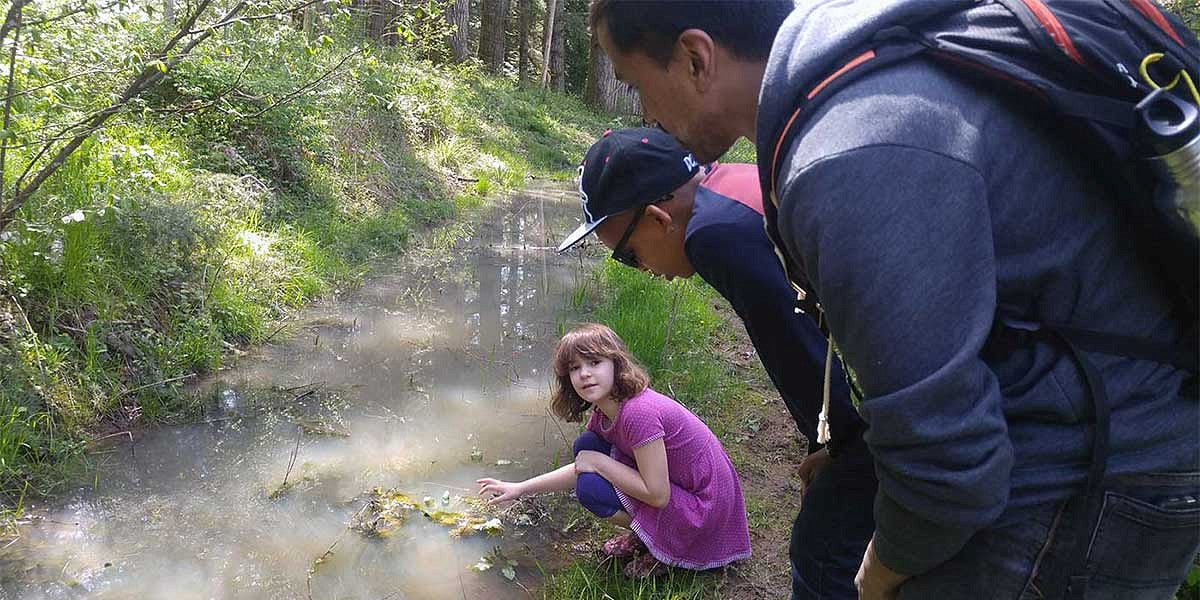
“We don’t want this to be normal field trip where you have a worksheet that you have to complete and you feel like you’re in school,” said Frazier, an Oregon native. “We want this to be a memorable experience where students feel like they are coming home from a trip with better friends and a better understanding of Oregon.”
On the banks of the stream, a boy, one of the taller two, points as he yells, “There’s one! It’s a newt! I see it! Do you see it?”
The rest of the group strains, following the line of his finger… looking, hoping.
“It’s right there!” a small girl in pigtails says, her smile wide as if she’s just seen a magic trick. Then, one by one, as the rest of the children crowd around, they find the newt, barely below the surface of the water. Then, as quickly as they’ve spotted it, it’s gone. But instead of retreating into disappointment, the voices marvel. In delighted tones they ask each other if they all saw it, wasn’t it cool, and how big did they think it was?
In almost every way, what the children on this organic farm and education center have seen really is magic. Newts don’t just conjure themselves up on a sidewalk in Portland. Some of the children even doubted such a thing existed just minutes ago. But it was real, it was there.
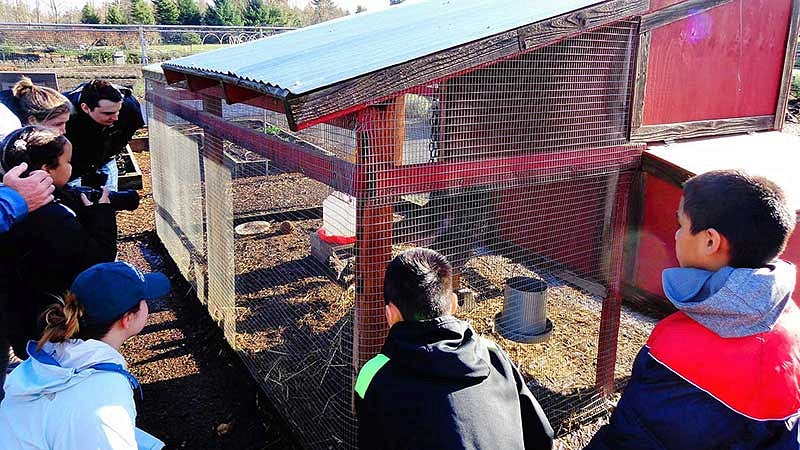
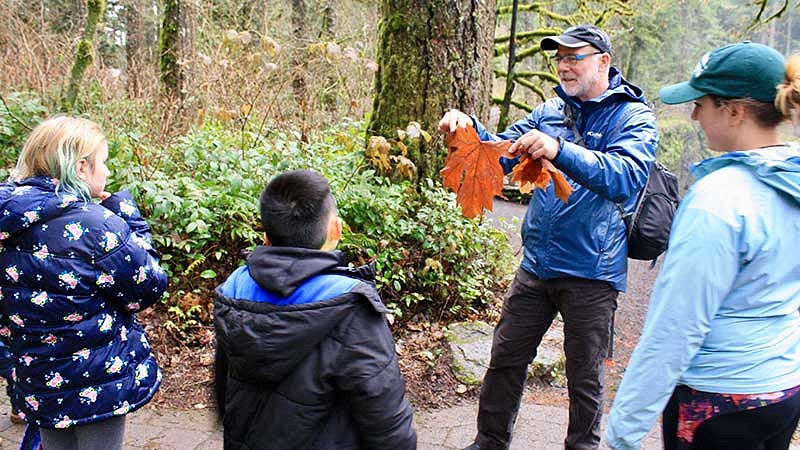
Frazier got the idea for Passport Oregon in the year after he graduated from the University of Oregon in 2015. He was mentoring a young student named Omar, and Frazier’s girlfriend was about to visit from out-of-state with the idea of possibly moving here.
“I told her that she was going to have to see the state because anyone who lives here should, and when I was planning the trip to Crater Lake, I sat down with Omar and decided to run through the same schedule I was planning on taking my girlfriend on,” Frazier recounts.
He asked Omar if he had been to Crater Lake.
“No,” Omar replied.
“Mount Hood?” Frazier asked.
“No,” the boy answered, and it was the same for the Gorge and the coast.
At the time, Frazier was shocked, but has learned in hindsight that he shouldn’t have been. With busy working and single parents, some kids simply don’t have the opportunity to see parts of the state that aren’t within their direct area. He also realized how important it was to connect people, particularly kids, with the different parts and terrains of the state.
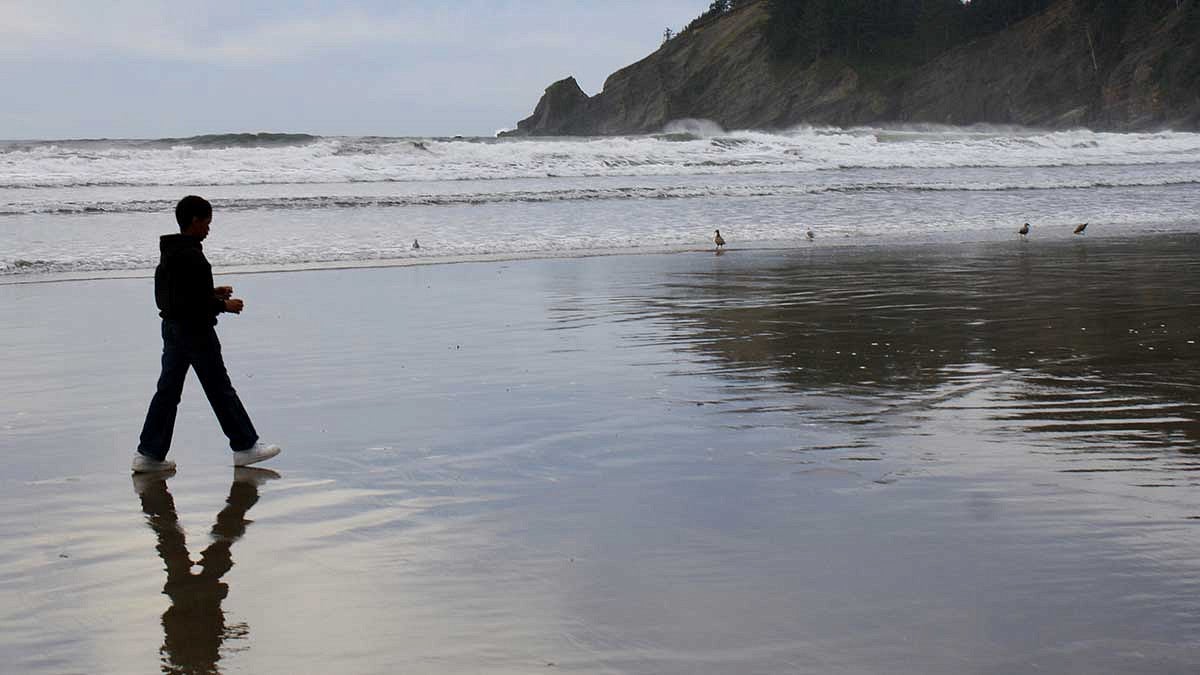
Frazier, who had previously worked in Governor Kate Brown’s office as a scheduler and coordinator “generally made sure the trains ran on time.” He said it was that job that made him understand that there was no corner of Oregon “that doesn’t have incredibly creative people, incredibly passionate people and incredible outdoor opportunities.”
“I was able to see all of those different places,” he said. “And realized that if we were able to make that a norm, make that a reality for all Oregonians, we’d be even stronger as a state and the potential to develop really awesome ideas and even stronger ties and community relationships would be really exciting. To do that at a young age would be very impactful.”
So he decided to simply start talking. Talking to people across the state, talking to anyone with an affiliation to the outdoors to try and determine if he would be duplicating any effort by trying to launch a project that brings school-age children to nature.
“Over time,” he said,” I realized that no one had this emphasis on a statewide outdoor program.”
It’s no coincidence that listed on the staff page of Passport Oregon’s website there is a large number of volunteers with the last name of “Frazier.” The encouragement he had to start the nonprofit was strong, not only from family, but friends, too.
“I have quite an awesome network of friends and family and that’s in large part attributable to UO, where I had a number of opportunities to make ties with people who were adept at getting stuff done. I had a network of folks who had that ‘can-do’ attitude and who had a willingness to take a risk,” he said.
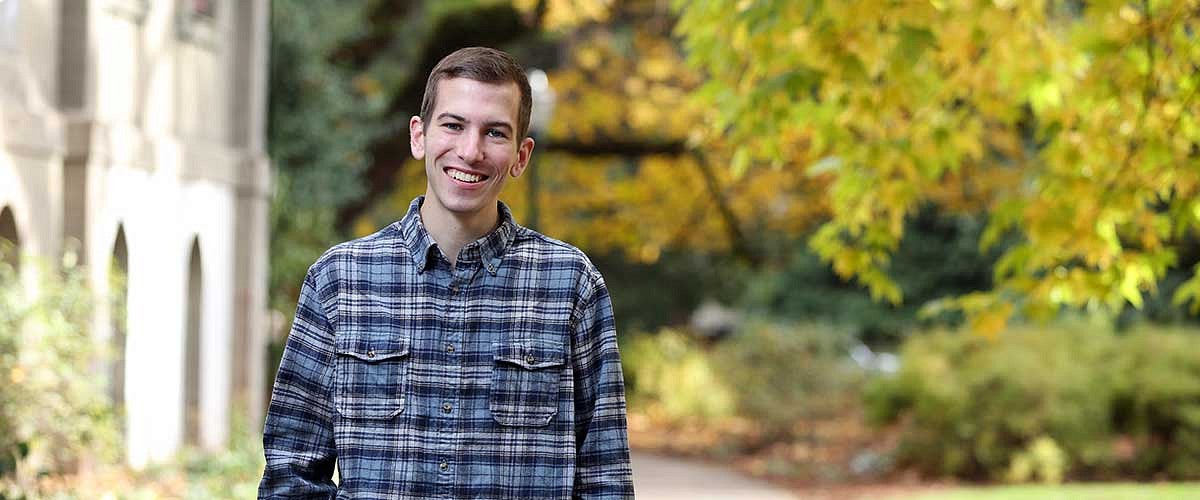
Kevin Frazier earned his degree in economics while in the Clark Honors College and was a finalist for the Rhodes and Truman scholarships
Frazier and his collective team decided to focus on Title One schools, which are schools with a high percentage of children from low-income families. Frazier used his experience of traveling with the governor and talking to people from a variety of communities to lift his project off the ground.
“I met tons of people who understood what they needed to develop and offer more opportunities for the residents,” Frazier explained. “And one of those people was Joe Galati.”
Galati, now a member on the board of directors for Passport Oregon, was an elementary school principal and educator for 29 years in the Portland area.
“I asked, ‘Is this for kids?’” Galati recalled. “And when Kevin nodded, I said, ‘Yes. I will be involved from day one.’”
It was Galati who suggested Creston Elementary, a Title One school that was exactly what Frazier was looking for in relation to the socio-economic status of the neighborhood he wanted to target first.
“It was a good opportunity for the school,” Galati said. “It was the perfect base to build off of.”
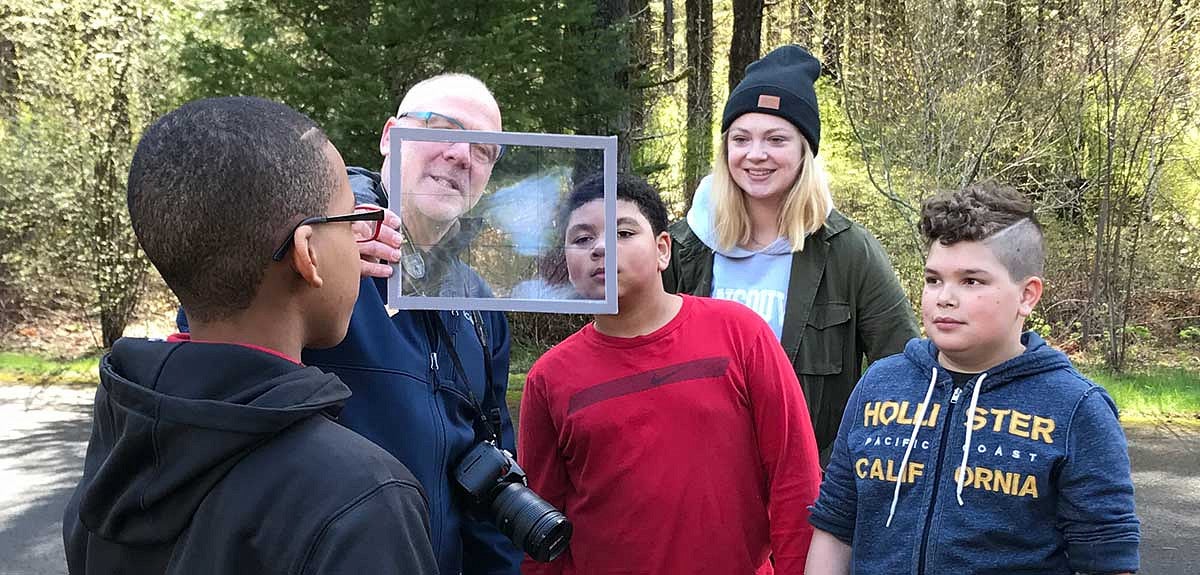
Frazier watched the first initial excursions, according to Galati, monitoring and checking that they were seeing the project from all perspectives to understand where he could improve the experience for the kids. He quickly realized that Passport Oregon needed to provide breakfast and lunch for the children, and that purchasing their own van would be a must.
The reaction was immediate and exciting. “Parents were asking if they could go on every trip,” Galati said. “Passport Oregon gives kids a point of reference that they didn’t have before; there is a value to what they experience.”
He recalls a trip to Salem last year when students from his elementary school met with Governor Brown and Senators Merkley and Wyden.
“The governor sat on a pile of dirt for an hour and a half talking to the kids, answering their questions and just having a conversation with them,” he said. “The kids are still talking about that today.”
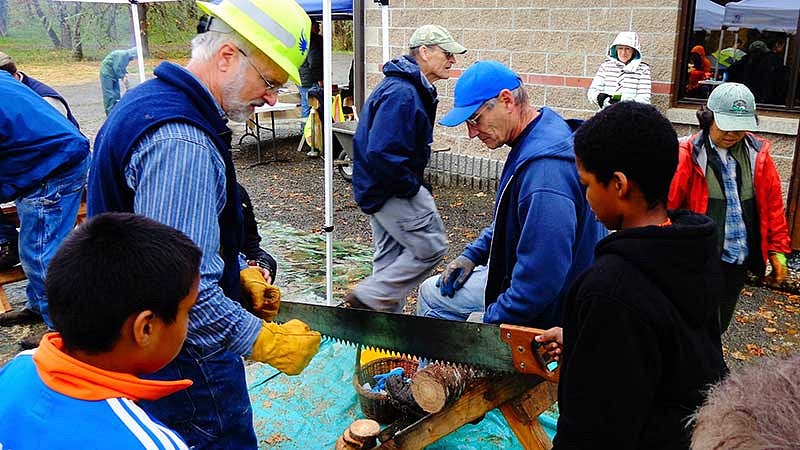
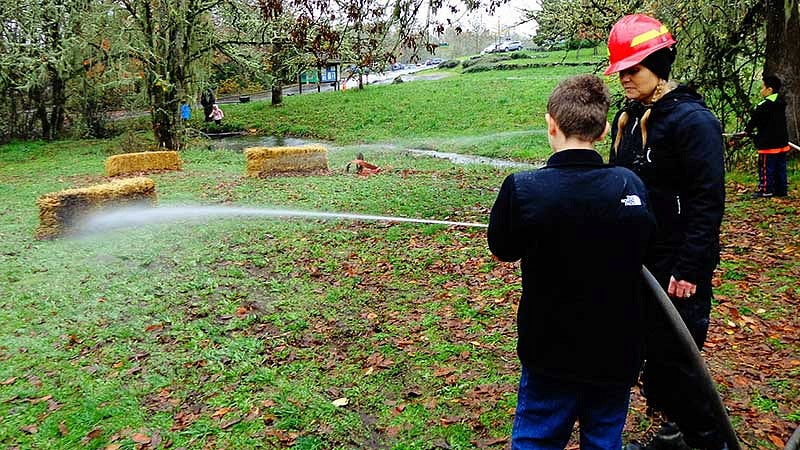
Frazier wasn’t shy about getting support for his vision, and humbly suggests that typically, all it took was several conversations over a cup of coffee to get sponsorship and financial support to help create his vision. “It’s just been really nice working in Oregon because I found that regardless of who I’m talking to, everyone’s first question is ‘How can I help?’” he said.
Frazier secured support from Columbia Sportswear, Café Yumm, Sister’s Fruit Company, Impact Northwest, Kind, and Embassy Suites, where both cohorts of kids stop to eat breakfast before every trip. Their partnerships range from financial to supplying lunch and snacks for the kids.
As a result, Passport Oregon is in the process of purchasing its own van, and has expanded the program to a second cohort at Beaver Acres Elementary School, taking each cohort group on two trips a month. Each venture costs $150 total, and is completely free for the participants. The regular, twice-monthly trips help to instill the consistent experience of being in the outdoors, Frazier feels.
“We began to see this real need for a continued exposure to the outdoors in every part of Oregon,” he explained. “We want to make it more natural in the lives of the students.”
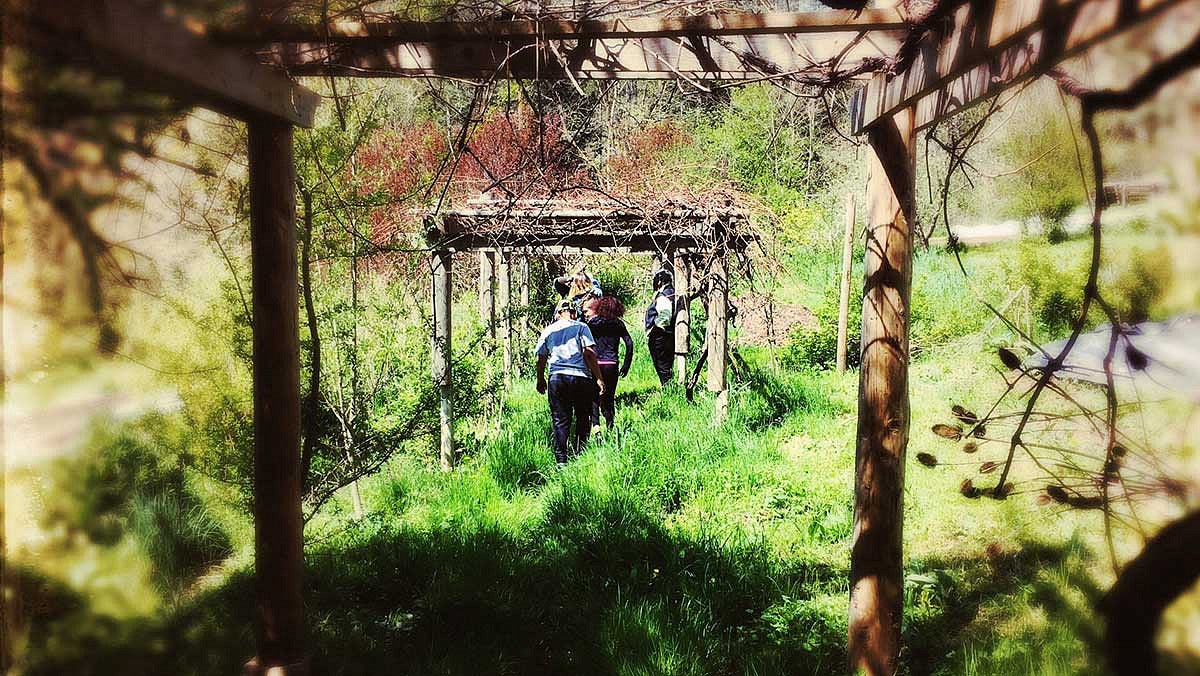
At Aprovecho, the trail of students winds up a small hill of indigenous plants as Greene talks to them about how to make a poultice from comfrey, which so happens, is growing in a large bush to her right.
Behind her, one of the younger boys isn’t particularly paying attention. He is intently staring at his arm, held out in front of him, watching a caterpillar inch along in careful, small waves. One by one, the other children notice until a circle forms and they watch as the spiny creature travels to the boy’s elbow.
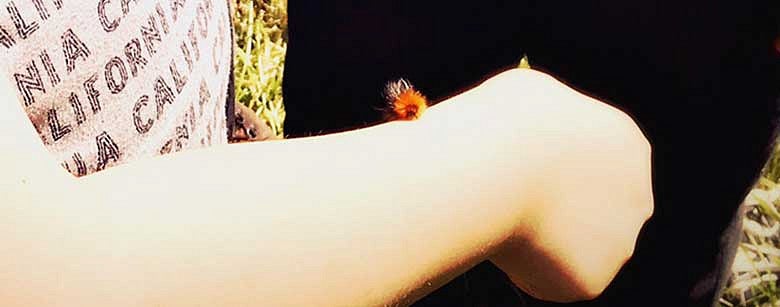
Patrick Miller is the cohort leader on this trip. Like most of the Passport Oregon staff, he met Frazier while attending the UO, and coordinates all of the trips that involve Creston Elementary. The same seven children attend two trips a month with Miller and a parent or two in attendance. He hangs back for the most part, careful not to interrupt the banter of the children and their interaction which each other.
“I have a lot of experience working with youth and love exploring Oregon,” he says as the group moves down the hill into the garden area. “And this project seemed like a great opportunity to use both those passions.”
The reasons that this 24-year-old would give up two weekends a month to trek after fourth and fifth graders are obvious when a young boy approaches an artichoke plant and stares at it intently, trying for several moments to figure out what it is before he asks Greene.
“It’s a vegetable?” he laughs when he hears her answer. “I thought it was a fish!”
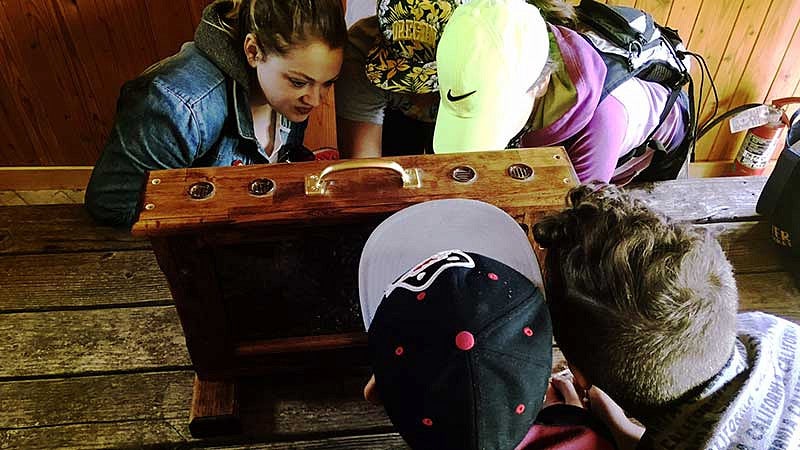
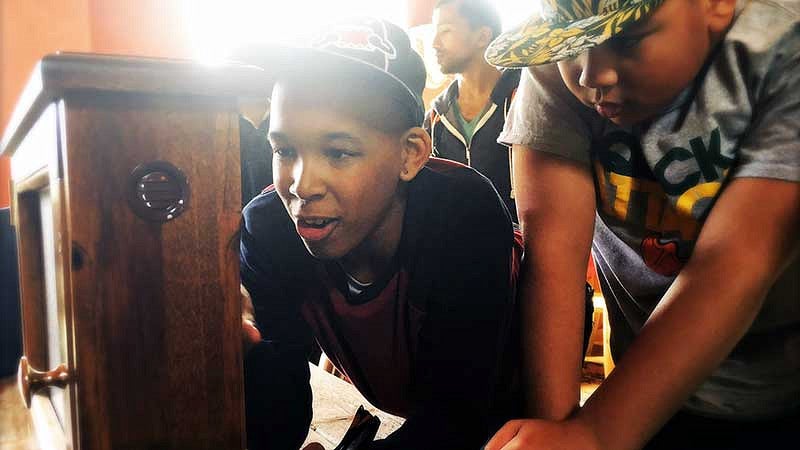
In a rustic cob-structure building with vaulted ceilings, plank floors and a cast iron stove at Aprovecho, beekeeper Paula Mance dons a wide-brimmed white hat with a netted veil. On a picnic table on the side of a room is a small box covered with a white cloth.
“All the honeybees in North America were brought here from Europe. They are not indigenous to this part of the world,” she says as she slips on the rest of her beekeeper’s suit. “They came to Oregon on the Oregon Trail in covered wagons, strapped to the sides.”
She reaches over and pulls the cloth from the square object to reveal a hive; a living, buzzing hive in a wooden and glass box. The bees are packed tightly, their wings constantly moving, flitting, en force. The students take a moment to decide whether it’s real or not; if this humming, moving colony before them is safe enough to approach.
“Listen to the sound they all make together,” Mance encourages them.
Ranjan, one of the taller boys, moves in first, then is quickly followed by the others to encircle the hive, touch the glass, put their ears to the top to listen to the bees’ vibrations. The smiles are wide, the wonder is enormous. Their fingers trail the path of a specific bee; others lean in close and just watch as the hive moves, warms and lives.
This is something, undoubtedly, that will be talked about in the days and weeks to come. To family members, friends, teachers. This is an experience that won’t be forgotten after it’s over. It will remain, the warm glass touched by hands, the steady murmur of the bees loud enough to hear, loud enough to feel.
As magnificent as this moment is, Kevin Frazier doesn’t want it to stop there.
“The ultimate vision is having Passport Oregon chapters across the state,” he said. “And I don’t think that’s too big of a dream. I think if this has taught me anything, it’s really that the quote is true: There’s nothing a small group can’t do in this world of dedicated people.”
